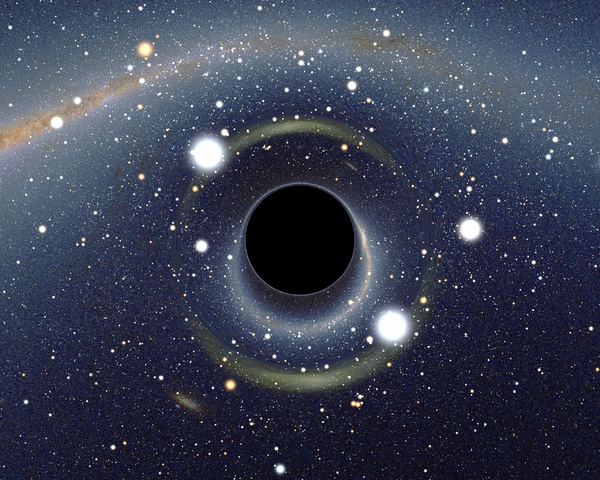


CAPE CANAVERAL — After decades of so-called scrutinizing the cosmos, scientists have finally managed to notice a supermassive black hole staring them right in the face.
“This one’s on us,” stated Dennis Brown, a Canadian astronomer who helped discover the impossible-to-miss wonder. “We definitely should have noticed that sooner. Then again, we probably should have noticed [US astronomer Steven] Caldwell’s drinking problem before he barfed on our star charts, but we just thought Americans were always that friendly and loud and reeking of whiskey.”
“Things have maybe gotten a little lax around the office,” said German astronomer Gustav Friedkin. “I found this amazing TV show that we’ve been binging. Have you heard of it? It’s called Breaking Bad. It’s so good, I can’t believe no one’s talking about it!”
“Are we embarrassed by the oversight? Maybe a little. But honestly, black holes aren’t as easy to see as people think,” laughed Canadian Laura Bryant as a large spider walked slowly over her face. “You have to be pretty observant to be an astronomer; put that in the article,” she added, many hours after the reporter had left the office.
“Sometimes I think it’s a good thing we’re not police detectives or something,” Brown joked, shouting over the sound of the observatory’s “imminent celestial collision” siren. “It’s important to remember how low the stakes are in this business.”
When asked for comment, team supervisor Michael Hale was unperturbed by both the astronomers’ oversight and the meteor storm decimating the building in which he stood unnoticing. “These guys are hard workers, believe me. They don’t get away with any slacking off on my watch,” he assured reporters, oblivious as the red hot space rocks pelted the ground all around him. “You can’t expect them to pay attention to every little detail.”


